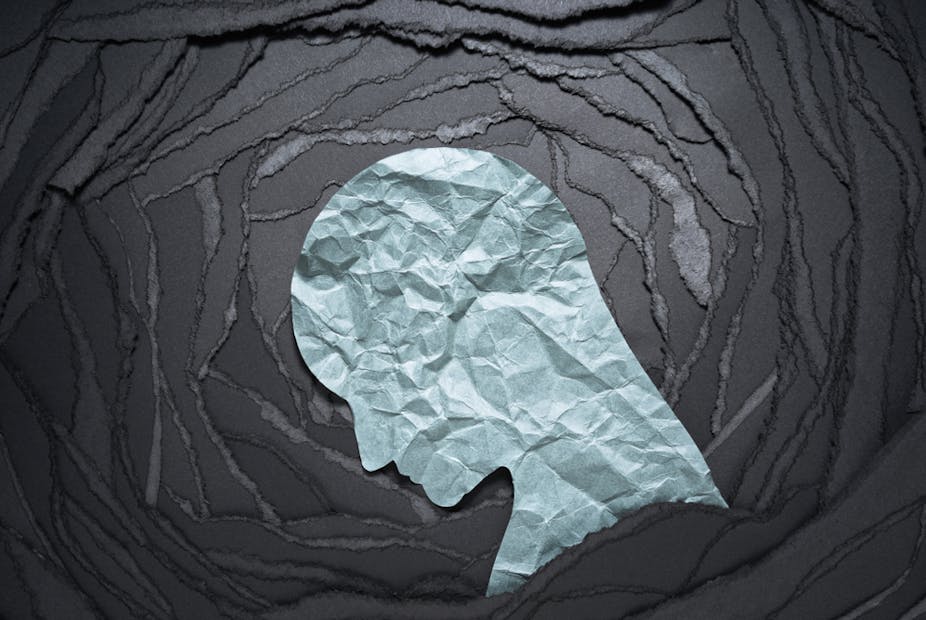
Some severe mental illnesses include schizophrenia, major depression, and bipolar disorder. tadamichi/ Shutterstock
People with severe mental illness, such as psychosis or bipolar disorder, live on average 15-20 years less than the average person – which is one of the key health inequalities people face in the UK and worldwide. But although programmes and initiatives have been created that aim to help people with severe mental illnesses take control of their health, these targeted interventions often fall short.
One major reason that people with severe mental illness live shorter lives on average, is because they’re more likely to suffer from physical health conditions. Not only does research show they’re twice as likely to have obesity, diabetes, or chronic obstructive pulmonary disease, they’re also 1.5 times more likely than the average person to have heart disease.
But socioeconomic status also has a major effect on how likely a person is to develop these conditions, including those with severe mental illnesses. Socioeconomic disadvantage – such as having lower income, receiving less education, or living in a deprived area – are all shown to be causes in developing chronic health conditions.
Continue reading and discover, as always with “The Conversation”, that there are lots of links available.
Labels:
mental_illness, physical_health_problems, socioeconomic_disadvantage,
No comments:
Post a Comment